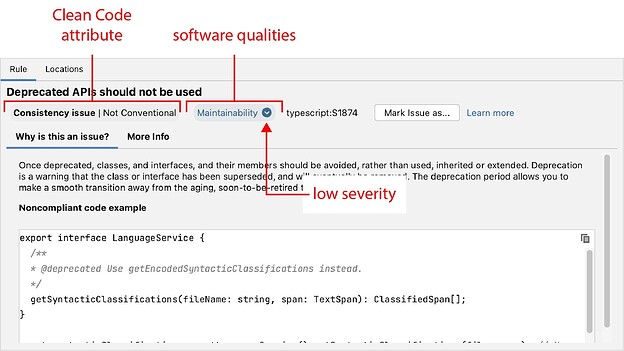Hello IntelliJ users,
The main focus of this new release is to reflect our updated vision of Clean Code; you can read more about this important change in Sonar products here.
One of the more visible changes you’ll notice is that for each issue raised in your code, SonarLint reports the associated Clean Code attribute and the Software qualities that are impacted. You can learn more about those definitions here.
In order to help you keep your secrets (tokens, passwords, API keys) secure, this version adds the capability to detect secrets for 22 more popular cloud applications and providers, you can see the full list of supported rules here.
Another improvement that we’ve shipped in this release concerns those of you using SonarQube: In SonarLint version 8.4 we added the possibility to change the status of issues that you’re not going to fix. With version 9.0, we have extended this capability to issues that have been detected by SonarLint in new code that has not yet been analyzed by SonarQube. In order to benefit from this, your organization will need to upgrade SonarQube to the 10.2 version, which will be available in a few days.
Here is a selection of the other changes:
- SonarLint documentation is now available on the Sonar documentation website

- 9 new core Python rules.
- Plenty of new JavaScript and TypeScript rules
- Support for PHP 8.3
You can see more in the release notes.
